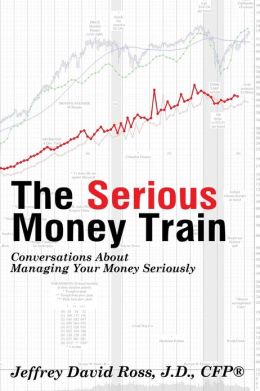
We often talk about the Platform of Confidence that we try to construct for our clients at The Planner’ Edge. By way of review for some readers and a fresh explanation for others, I am going to provide an overview of the elements that (hopefully) comprise your personal Platform of Confidence.
Three Fundamental Conditions
Let’s begin with an understanding that building and maintaining confidence about your financial affairs is difficult because (among other reasons) we all face three fundamental conditions in our daily lives:
- Life is busy. We fulfill our existing commitments, obligations, and expectations, adding new ones, but rarely deleting any.
- Life is risky. In addition to risks we hear on the news, there are risks related specifically to our money: inflation, debt, interest rates, etc.
- Life is complex. There are questions like how much to save, how to invest our retirement accounts, lease or buy, which pension option to choose?
In my 2013 book, The Serious Money Train, I explain one solution for each of these fundamental conditions: 1) because life is busy develop a long-range plan, which we call a Serious Money Vision Map; 2) because life is risky invest to protect yourself against the most important risk, which is the loss of your purchasing power; and 3) because life is complex hire a team of professionals to help you think through your decisions.
Three Fundamental Principles
If our journey toward lifetime financial success is like a long train ride, then it helps to have a manifesto. Our manifesto is comprised of three fundamental principles. These principles guide our strategies, our reactions to big events, our Serious Money Conversations, and our recommendations to you.
Let’s review these Principles, what they mean, and why they are important:
- Faith in the Future. This is a belief, grounded in the history of real life, that our big, worrisome problems will get solved, even if we don’t know how they will get solved.
- Patience. This is a corollary belief that problems will get solved, even if we don’t know when they will get solved.
- Discipline. This is a belief that it makes more sense to do the things that have always worked over the long run instead of trying new things that have never worked.
Faith in the future is important because it accurately portrays the path of human progress, which is always upwardly sloping, toward greater freedom, inter-connectedness, convenience, and new capabilities. Problems and obstacles have always gotten in the way of this path, but rather than hinder the path, they actually have provided the raw materials to develop a workaround or a new capability for progress to continue. Therefore, it makes sense to believe in the continuation of this upwardly-sloping path, even though we don’t know how we’ll work around the new obstacles that will inevitably present themselves.
Patience is important because if we don’t know how the big problems are going to be solved we can’t know when they will be solved either. Although it is tempting to try to out-guess the market (“it’s about to zoom, let’s buy”—“it’s about to crash, let’s sell”) there is zero evidence that anyone—certainly not the all-time world-class investors we know by name—has shown repeated success at out-guessing the market. In fact, it’s the opposite: the data show that successful investing is a long-term proposition. Patience, in the context of investing, is indeed a virtue.
Discipline is important because it is so easy to fall into the trap that Sir John Templeton once called the 4 most dangerous words of investing: “This time is different.” When markets are zooming, it takes discipline to take profits off the table and avoid thinking that this time is different and the market will zoom to the sky. When the markets are plunging it takes discipline invest more money at lower prices and to avoid thinking that this time is different and the market will fall to zero.
I hope this has helped your understanding of our Serious Money Approach at The Planner’s Edge. Please don’t hesitate to contact us with questions or comments.
Jeff
FORWARD LOOKING STATEMENT DISCLOSURE
As a Registered Investment Advisor, one of our responsibilities is to communicate with clients in an open and direct manner. Insofar as some of our opinions and comments are based on current advisor expectations, they are considered “forward-looking statements” which may or may not be accurate over the long term. While we believe we have a reasonable basis for our comments and we have confidence in our opinions, actual results may differ materially from those we anticipate. You can identify forward-looking statements by words such as “believe,” “expect,” “may,” “anticipate,” and other similar expressions when discussing prospects for particular events and/or the markets, generally. We cannot, however, assure future results and disclaim any obligation to update or alter any forward-looking statements, whether as a result of new information, future events, or otherwise. Further, information provided in this letter should not be construed as a recommendation to purchase or sell any particular security.
The Planner’s Edge®: TM & copyright 2013. All rights reserved. No part of this publication may be reproduced in any form, or by any means whatsoever without written permission from the publisher. Serious Money TalksTM is a trademarks of The Planner’s Edge®. If you would like further information about the services of The Planner’s Edge®, please call 206-232-4500 or 1-800-735-7302. Email: info@theplannersedge.com.

